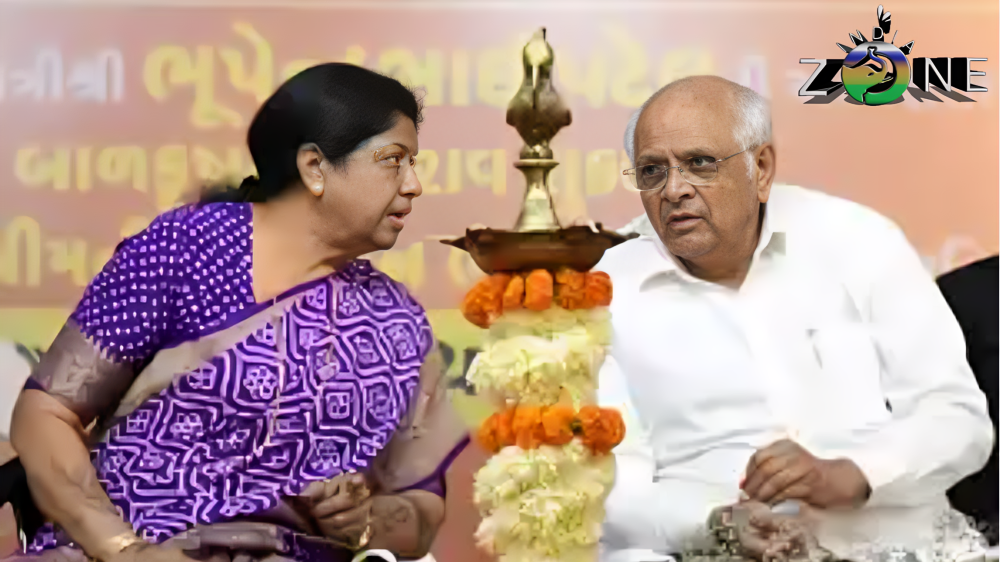
Gujarat’s political landscape has been shaken by the abrupt withdrawal of two Bharatiya Janata Party (BJP) candidates from the Lok Sabha seats of Vadodara and Sabarkantha, surprising both party members and the general public. Shortly before a crucial meeting of the BJP’s central electoral committee to choose and support candidates for the forthcoming Lok Sabha elections, these events took place.
The public, party affiliates, and political analysts have been speculating and debating the reasons behind these withdrawals and how they would affect the party’s chances of winning elections due to the timing of these actions.
The candidates, who were before thought to be formidable opponents for their seats, announced their intentions on social media, citing “personal reasons” for their sudden withdrawal from the election contest.
This unusual form of communication in the political sphere has only heightened the mystery surrounding their departure, giving rise to a number of theories and interpretations regarding the underlying causes. The absence of comprehensive justifications has stimulated conjecture regarding the potential influences on their choices, including but not limited to personal circumstances, wider political tactics, or internal party dynamics.
The announcements have also drawn attention to the BJP’s procedure for choosing candidates, posing queries regarding the screening and decision-making processes inside the organization. The BJP has historically maintained a strong presence in Gujarat, making it a strategically crucial state. For this reason, the choice of candidates for the Lok Sabha seats is carefully considered.
The abrupt exit of these candidates not only calls for a prompt reassessment of possible alternatives, but it also suggests a possible weakness in the party’s otherwise strong electoral apparatus in the state.
Furthermore, these events have sparked a more widespread discussion on the difficulties and obstacles faced by political candidates in India’s extremely competitive political landscape. Although not unusual, the citation of “personal reasons” for withdrawal highlights the intricate interaction of personal, professional, and political variables that impact a candidate’s capacity to compete in elections.
The electorate, party members, and political observers will be closely watching how the BJP handles these obstacles as it tries to deal with this unforeseen circumstance.
The BJP is currently making the selection of fresh candidates for the Vadodara and Sabarkantha seats a top priority in order to preserve its control in Gujarat and present a united front before the hotly contested Lok Sabha elections. The consequences of these events will surely have a significant impact on the party’s electoral tactics and its capacity to inspire support from voters in these important areas.
Political circles and the general public have been shocked by the sudden withdrawal of two well-known Bharatiya Janata Party (BJP) candidates from the 2024 Lok Sabha election contest. Bhikaji Thakor, a candidate from Sabarkantha, and an experienced MP from Vadodara both cited “personal reasons” for their decision.
Due to the timing of their announcements and the ambiguous explanation of “personal reasons,” there is a great deal of speculative discussion over the true reasons for these abrupt resignations. Given that it has occurred at a pivotal point in the lead-up to the elections, this issue has particularly agitated the political landscape. A rush of discussions and studies has attempted to unravel the ramifications of these withdrawals.
A well-known member of the BJP and a former national vice president of the Mahila Morcha, Jyoti Pandya, voiced public disapproval in Vadodara, where the issue took a more dramatic turn. The higher echelons of the party structure took offense to her direct criticism of the party’s candidate selection procedure, which specifically targeted the Vadodara candidacy. The rapid suspension of Pandya subsequent to her remarks had no effect in quelling the growing unrest within the local party levels.
Rather, it appeared to serve as a spur, inspiring fellow party members and local dignitaries to voice their own grievances. This general discontent was made evident throughout Vadodara in the shape of posters that publicly criticized the candidate and, consequently, the party’s decision-making procedure.
This series of events in Vadodara reveals a complicated web of internal politics, allegiances, and grievances, as well as the underlying tensions and fissures within the party structure. The strong opposition expressed by a leading party official such as Pandya, juxtaposed with the support offered by other local leaders, reveals a profound degree of dissatisfaction and division that extends beyond particular grievances against specific candidates.
It highlights more fundamental problems with the way candidates are chosen, the openness of the procedure, and the extent to which local party attitudes and preferences are taken into account.
The perception of unity and organizational strength inside the BJP is under threat due to the rise of public dissatisfaction among the ranks in Vadodara, a significant electoral constituency. It also calls into question the party’s capacity to control dissension inside the party and keep its election plan cohesive.
The comments and measures adopted to address the complaints voiced by party officials and members will be attentively observed as the BJP leadership navigates these turbulent seas. Its prospects in Vadodara and elsewhere will be greatly influenced by how well the party is able to bring together the disparate views and expectations within its members and put up a united face in the run-up to the 2024 Lok Sabha elections.
In the lead-up to the 2024 Lok Sabha elections in Gujarat, a complex political drama has emerged, with obstacles and issues that go across party lines and affect multiple constituencies. The BJP’s choice of candidate in Sabarkantha has sparked a contentious debate. The party’s nominee, Bhikaji Thakor, became entangled in a dispute concerning his caste identification, a delicate and important matter in Indian politics.
Raising doubts about Thakor’s assertion that he is an OBC member, pamphlets disseminated in the constituency claimed that he is related to a tribe known by the moniker Damor.
Similar to this, the BJP is facing internal opposition in the Valsad (ST) seat due to Dhaval Patel’s nomination. Many party members view Patel as an outsider. Discontent has been planted within the local party cadre due to this impression of Patel, which is indicative of a wider problem that is felt in a number of Saurashtra constituencies.
The opposition to outside candidates highlights how crucial grassroots activism and local ties are to Indian political processes. It draws attention to the careful balance that political parties need to maintain between fielding new faces and making sure that the local electorate and party structure embrace and support them.
The Congress party is also having difficulties, especially in the Ahmedabad East constituency. The party is in disarray following Rohan Gupta’s resignation from the party and his withdrawal from the race due to a senior party leader’s character assassination.
Internal conflict and factionalism can jeopardize party unity and electoral tactics, as demonstrated by Gupta’s abrupt resignation and the public altercation that followed with party spokesperson Manish Doshi. Doshi’s notion that the party would gain from Gupta’s exit raises questions about underlying tensions and the difficulties parties have in juggling grievances, personal goals, and the common political objective.
These instances involving Gujarat’s two main political parties illustrate how complicated and frequently turbulent Indian electoral politics can be.
They highlight the difficulties in choosing candidates in light of caste relations, opinions of locals vs those of outsiders, and party cohesion. How the BJP and Congress handle these issues and negotiate the choppy waters of constituency politics as the election draws near will be a key factor in determining whether they succeed or fail in these important seats.











